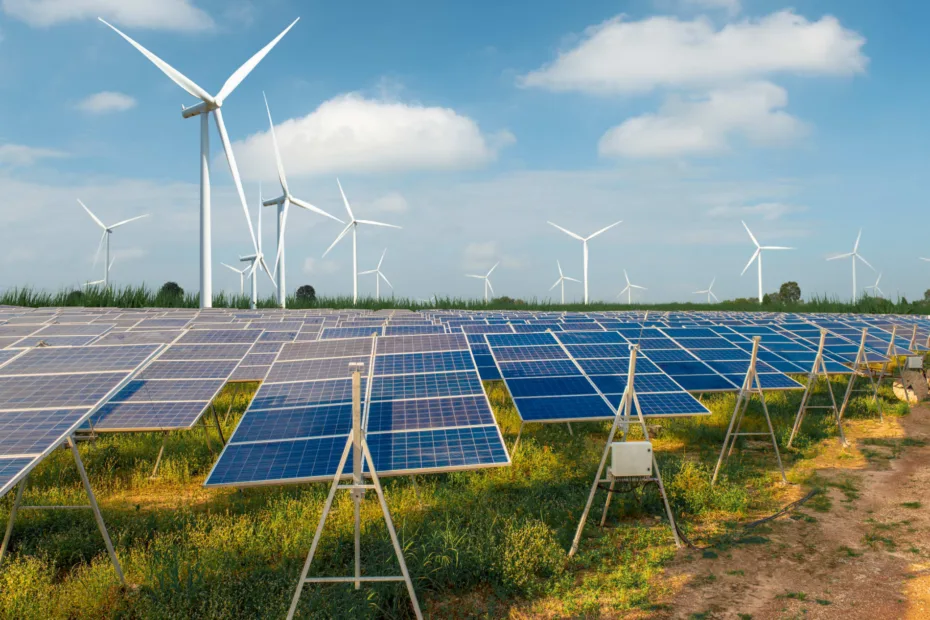As we head into 2024, the renewable energy sector is set to see innovation that will transform the way energy is accessed, stored and deployed across Africa.
Paul van Zijl, Group CEO at Starsight Energy discusses 4 key trends that he thinks will profoundly shape the industry over the next year.
Batteries for Solar Power
Battery Energy Storage Systems (BESS) are transforming solar technology, moving beyond their traditional role as backup storage.
Traditionally, the primary goal was a consistent power supply in unfavorable conditions.
In 2024 however, the focus shifts to load management, optimizing energy consumption dynamically with batteries.
Growing battery deployment trend in Africa will make advanced management systems crucial for solar installations with integrated battery components.
These systems predict energy needs with smart programs. They use batteries wisely, releasing during peak times, and charging during off-peak.
This boosts solar system efficiency and helps the grid during busy periods. Moreover, it cuts costs and makes power more stable.
BESS will also play a bigger role in storing electricity for large-scale renewable energy projects.
In South Africa, Eskom plans to deploy 343 MW in BESS projects as part of a 500 MW initiative to tackle the country’s electricity crisis.
Adding battery storage to the national grid in South Africa means businesses and people can get reliable electricity faster.
It also helps Eskom manage peak energy demands. Storing power from large solar projects means it can be used even when the sun isn’t shining, avoiding wasted grid capacity.
Read Also: TotalEnergies Launches Construction of Solar Plant in South Africa.
Off-Grid Solutions for Data, Banking, and Tourism
Off-grid solar solutions are becoming popular in three important industries: data centers, banking, and tourism.
Data Centers – Africa is a big center for data, but there’s a problem with not having enough electricity.
Big data centers need a steady power supply for their computers and cooling systems. To avoid any risks like a power cut, they are starting to use off-grid solar with battery storage.
Banking – Even though many people use mobile banking in Africa, there’s still a need for physical banks and ATMs.
These places must stay open, even if there’s no electricity due to a power failure or grid collapse.
Therefore, using off-grid solar solutions is becoming very important for the future of banking.
Tourism – People are now more aware of the environment when they travel. Eco-tourism is becoming popular, and travelers look for places that are eco-friendly.
Luxury lodges in East and Southern Africa are using off-grid solar with batteries to make sure guests always have power.
This also helps the lodges show that they care about the environment.
More and more businesses are realizing the benefits of off-grid solar, and so, we can expect to see even more of this technology in the coming year.
Seamless access to renewables through a reimagined aggregation model
In 2024, there will be a change in how energy is provided. Companies will combine different technologies and services into complete packages.
This shift is because it’s better for customers and makes energy production and use more efficient. One way to do this is through electricity trading in South Africa.
For instance, a solar energy provider can buy and sell excess wind energy without needing a lot of money.
Instead of making gas-powered energy compete with renewable energy, companies can combine these services into one package.
The aim is to offer customers a seamless product that uses renewable energy in various parts of their daily lives.
The benefit for customers comes from providers working together to meet their specific needs and power the entire energy process.
Tackling complexities through an increasingly consolidated sector
In 2024, the solar industry is growing up, and bigger companies are expected to be merging.
Large energy companies will either merge or buy smaller ones to create stronger and more varied groups.
Their aim is to save money, have a bigger share of the market, and work together to bring new ideas by combining their resources and knowledge.
This merging is not just happening with the companies that make solar products. It’s also happening with the ones that provide services, do research, and manage energy.
By teaming up, these groups can deal with the challenges of the changing energy world better. This helps reduce costs and speed up the use of alternative energy sources across Africa.
This trend is creating bigger companies that can offer complete solutions for all kinds of needs – for businesses, people, and communities.
A recent example is the merger of Starsight Energy and SolarAfrica. Now, customers in Eastern, Southern, and Western Africa can get a mix of affordable solutions for secure power and reducing carbon emissions.
These solutions include solar energy, battery storage, wheeling, and energy management.
Looking ahead, 2024 promises more progress and a strong commitment to making the most of renewable energy.


